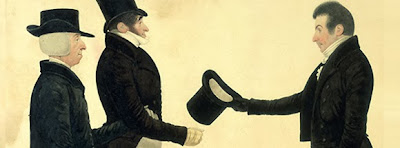My godson, Leo, leaves this week to start his undergrad at a prestigious Chicago university. Since it’s an expensive school, he and his parents were thrilled when he was invited to interview for a four-year scholarship that is awarded to only ten freshmen.
Leo is bright, articulate and
charming. I knew that if he could
contain his nerves and be his proverbial “self,” he’d have done all he could
do.
I called Leo’s dad the day after
the interview and he told me that Leo was so disheartened that he refused to
talk about it. When gently prodded by
his mother, he lashed out, saying it had been a disaster. I was baffled; even if he had done his worst,
it couldn’t have gone as badly as he thought.
Leo’s dad called the dean of
freshmen and asked if there was any feedback he could give him or Leo on the
interview. The dean wasn’t able to reveal
much except to say that two-hundred students had been invited to interview for
the scholarship and that Leo had made it to the final thirty. He didn’t receive the scholarship, but not
because he “bombed” in the interview.
The reality is that it’s so hard to
have an accurate sense of our “performance” in an interview, a presentation or
even a simple conversation. It’s even
harder when we hold ourselves to a standard of perfection––which is what Leo
holds himself to.
He didn’t get the scholarship. That’s a fact. He didn’t “bomb.” That’s a fact; but because he didn’t get the
scholarship, Leo equates that with making a horrible impression. His belief is a fact, but it’s also a fact
that it’s an unfair and debilitating belief.
He refuses to acknowledge what he’s accomplished because he has an
all-or-nothing attitude.
Life isn’t black-or-white. It’s seldom lived at the extremes. You don’t need me to tell you that life is
messy. Success can only be found within
that messiness. And for a perfectionist,
that’s hard to take seriously.
Dr. David M. Burns advises, “Aim for success, not perfection. Never give up your right to be wrong, because
then you will lose the ability to learn new things and move forward with your
life. Remember that fear always lurks
behind perfectionism. Confronting your
fears and allowing yourself the right to be human can, paradoxically, make you
a far happier and more productive person.”
Leo is going to the university as
his parents found a way to make it happen––even though they’re still paying off
their own college loans! I hope Leo
learns how to be successfully imperfect during his time in college. It may just be the best lesson he could
learn.





